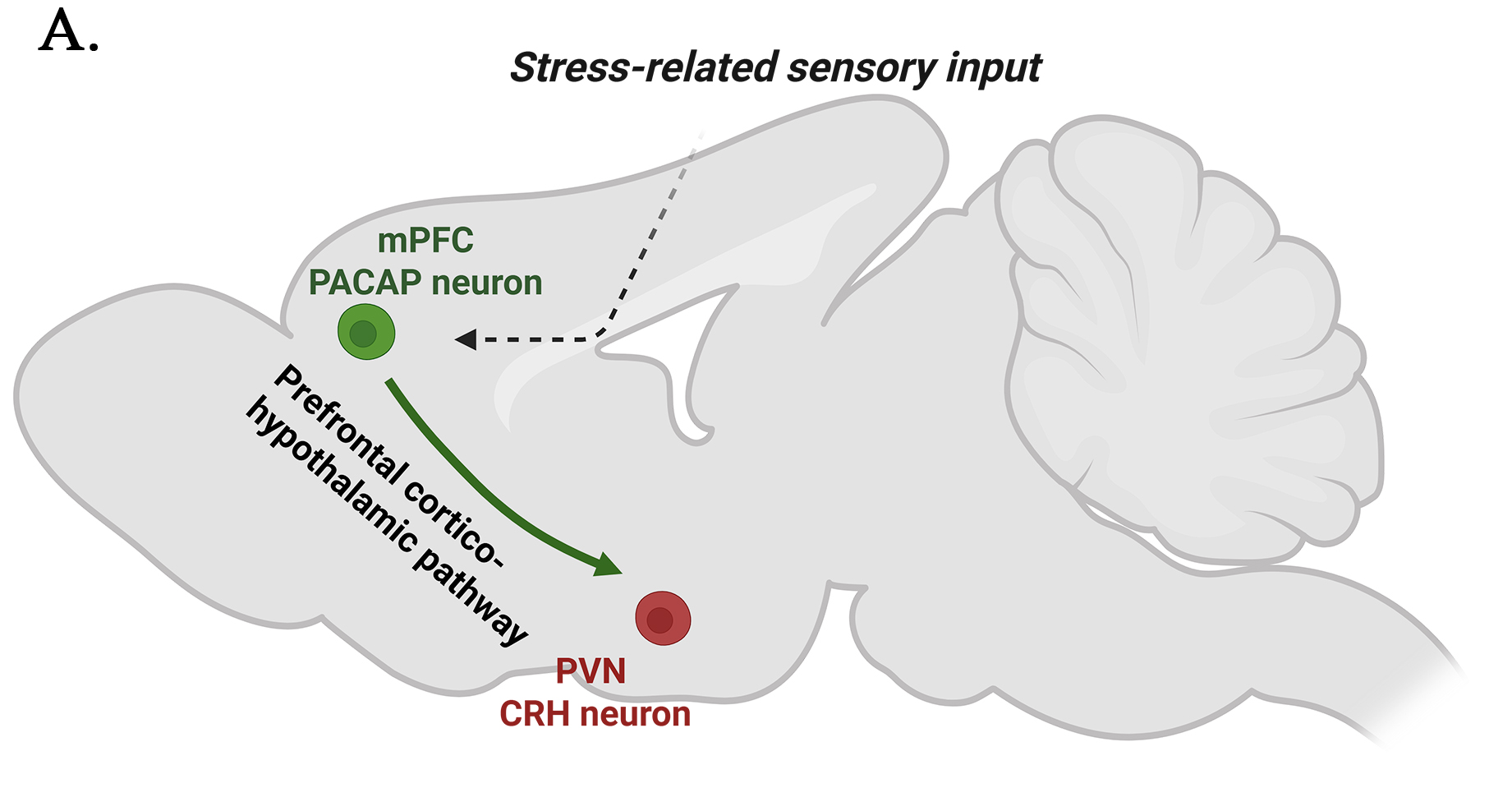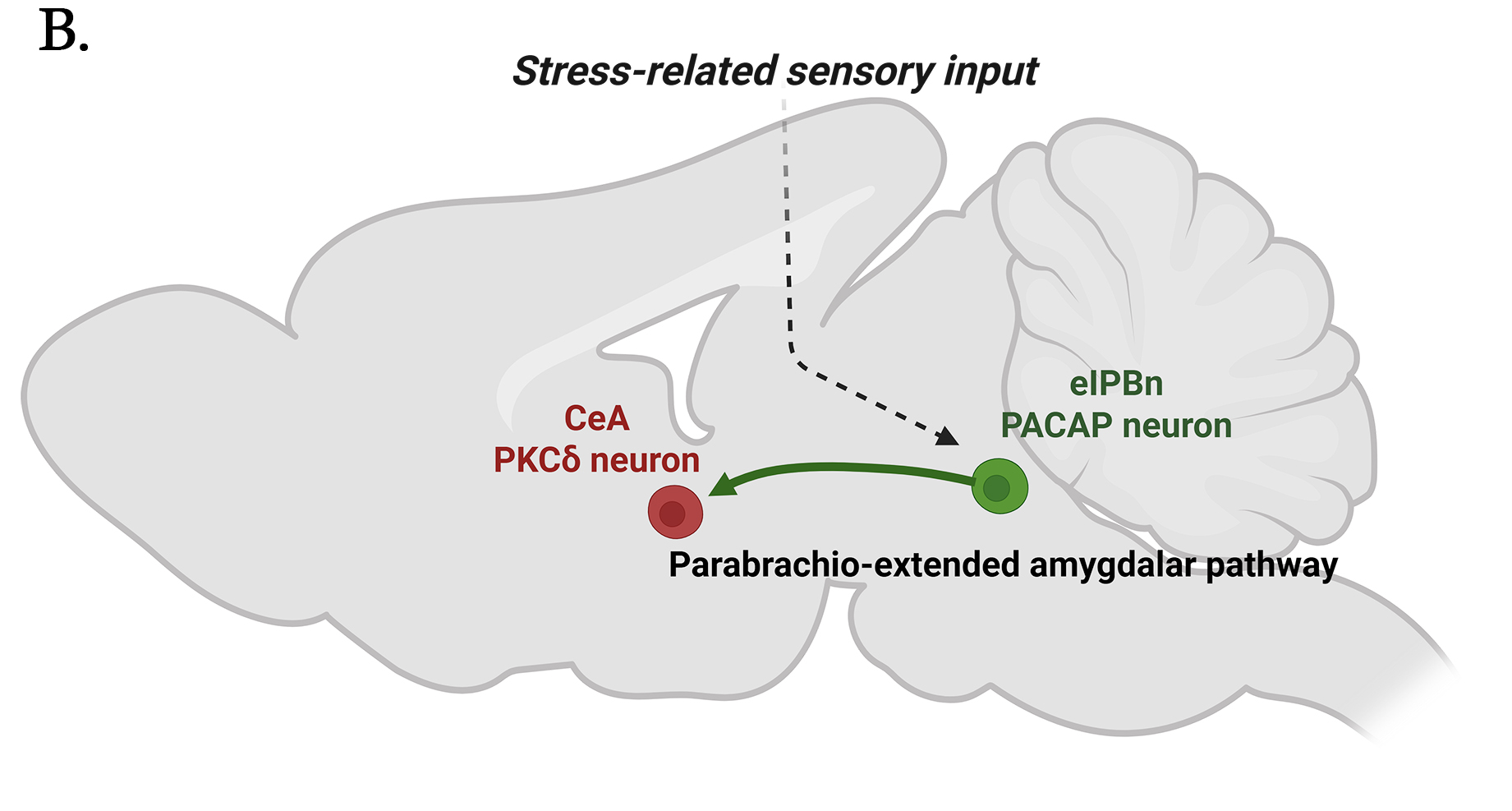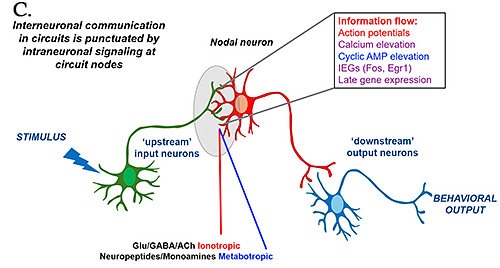Section on Molecular Neuroscience
Lee Eiden, PhD., Chief
The Section on Molecular Neuroscience studies the molecular mechanisms of chemically coded ionotropic and metabotropic neurotransmission in the nervous system. The ultimate goals of the Section's research are identifying molecular components of synaptic transmission, and how these components are regulated to allow short-term and long-term information to be encoded within postsynaptic neurons and neuroendocrine cells. We are exploring the general hypothesis that neuropeptide-encoded slow transmission may occupy a special evolutionary niche for nervous system adaptation to paraphysiological stressors, and that by studying neuropeptide function in stress physiology, we might uncover roles (and treatments) relevant to human disease.



Research conducted by members of the Section on Molecular Neuroscience (SMN) illustrates the roles of pituitary adenylate cyclase-activating polypeptide (PACAP) in brain stress circuits.
A. A PACAPergic projection from the medial prefrontal cortex (mPFC) to corticotropin-releasing hormone (CRH)-expressing neurons in the paraventricular nucleus of the hypothalamus (PVN) modulates both rapid behavioral and sustain endocrine responses to psychogenic stress.
B. A second PACAP projection, from brain stem to protein kinase Cδ (PKCδ) neurons of the central amygdala mediates stress-induced hypophagia.
C. Metabotropic signaling initiated by PACAP and coupled to cyclic AMP elevation, together with ionotropic signaling through glutamate, mediate parallel immediate-early gene expression, neuronal excitability, and late gene expression required for information flow and circuit function within nodal neurons in these two circuits (see Jiang et al., Biol. Psychiatry GOS 3: 673, 2023).

